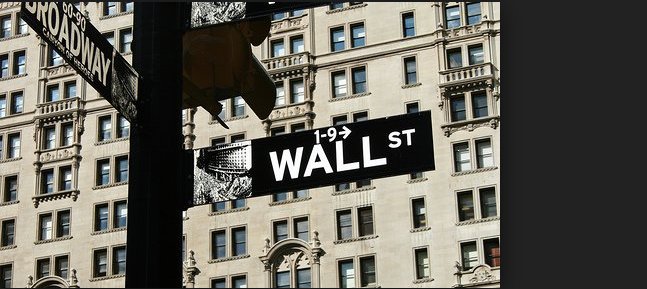
Hedge Fund Branding Drives Asset Flows Regardless of Fund Size
This is a guest post by Don Steinbrugge CEO of Agecroft Partners
Since the market correction of 2008, a vast majority of hedge fund net asset flows have gone to a small minority of hedge funds with the strongest brands. A recent report from Hedge Fund Research shows that approximately 69% of hedge fund assets are controlled by firms with over $5 billion in assets under management and 91% are controlled by firms with over $1 billion in assets. This is a significant increase from the 2009 percentages of 61% and 86% respectively.
Each year many hedge fund investors are inundated with thousands of emails and phone calls from managers requesting a meeting. To filter through the overload of information, investors are turning more and more to a firm’s brand when choosing which funds to meet and ultimately invest with. However, having a strong brand is not limited to just the largest managers. For example, many investors will allocate to startup firms that spun-out of other high profile organizations, despite the fact they have no audited track record. In reality, a strong brand is even more important for hedge funds with less than $250 million in AUM. Despite the fact that these managers represent a vast majority of the approximately 15,000 hedge funds, they only represent 2.94% of assets.
A brand is an investor’s perception of the overall quality of a hedge fund based on multiple evaluation factors that evolve over time. A high-quality brand takes a long time to develop, but once achieved, it significantly enhances a firm’s ability to raise capital and retain assets during a drawdown in performance. Over time, we believe the trend concentrating a higher percentage of assets in the largest managers will reverse. We expect this to happen due to increased sophistication of institutional investors, poor recent performance of many of the largest, well known hedge funds, the pressure institutional investors are receiving to enhance returns, and the belief that smaller, more nimble managers have an advantage in a performance environment increasingly dependent on security selection.
This is especially true for small managers operating in less efficient markets or capacity constrained strategies.
For the small number of new hedge fund launches that are successful each year, their high-quality brand was typically created at their previous firm. This may include having held a senior position at another top-quality brand hedge fund, having spun out of a top investment bank proprietary trading desk, or having been seeded by a well-known investor.
For the hedge funds not fortunate enough to launch with such fanfare, the key question is, what are the firms that have developed the strongest brands doing differently?
There are three critical issues to consider in creating a strong brand and raising assets in today’s competitive environment: the quality of the fund offering, the investor’s perception of the quality of the fund offering, and the marketing and sales strategy.
The first step in the process is having a high quality product offering. Based on Agecroft Partners’ hedge fund research process which considers thousands of hedge funds each year based on multiple evaluation criteria, 85% to 90% of hedge funds are not very good. With over 15,000 hedge funds to choose from, it is almost impossible for these sub-par managers to raise assets from investors outside of friends and family.
The biggest mistake most of these lower-quality hedge funds make is not understanding the evaluation factors investors utilize to select hedge funds and therefore not creating a top-quality offering. These typically include an evaluation of a firm’s operational infrastructure, investment team and their pedigree, investment process focused on an inefficiency in the capital markets and their differential advantages to capture this inefficiency, risk controls, performance, service providers and fund terms. A weakness in any of these factors can eliminate a firm from consideration.
The marketplace is highly competitive and hedge fund investors use a process of elimination in selecting hedge funds. This typically begins by screening the thousands of hedge funds in the market place, meeting with a couple hundred and hiring a select few each year. In some cases a minor adjustment can significantly improve the marketability of the fund. Hedge fund performance tends to be the initial screen which eliminates a majority of managers, but once performance has reached a certain hurdle its weighting in the evaluation process is less important than most managers realize.
The second step in the process of building a strong brand is making sure the market’s perception of the firm is equal to reality. This requires a consistently delivered, concise and linear marketing message that identifies the differential advantages across each of the evaluation factors investors use to select hedge funds. Many high quality hedge funds have difficulty raising assets because they do a poor job of articulating their message to the marketplace and their strengths are underappreciated or unnoticed. Unfortunately, it often takes only one poorly worded answer to get a firm eliminated from consideration.
It is important that the marketing message is clearly understood and articulated by all employees of the hedge fund. The message should be consistently integrated throughout all the firm’s communications including the website, oral presentations, written materials, due diligence questionnaires and quarterly letters. A well-prepared and accurate marketing presentation creates a consistency that builds confidence in potential investors.
The final step in building a strong brand is implementing a highly-focused marketing and sales strategy that broadly penetrates the marketplace while being compliant with regulatory guidelines. The hedge fund investor marketplace is highly inter-connected. Many investors exchange ideas on managers through both formal and, most often, informal channels. The hedge fund investor marketplace is highly inter-connected investors exchange ideas on managers through both formal and, most often, informal channels. As a result, the more deeply a manager penetrates the marketplace the stronger their brand will become. Building a strong brand and raising assets takes time and cannot be rushed. The hedge fund industry is not transaction oriented. In many instances, being too aggressive will eliminate a firm from the selection process. A majority investors require a minimum of three or four meetings with a fund before they will invest.
One way to accelerate the process is to utilize a well-seasoned, highly respected internal sales team, top-tier third party marketing firm or a combination of both. Experienced and well-thought of salespeople often have a reputation or brand in the marketplace themselves and can have a large impact on a hedge fund’s success in growing their asset base. If their brand is strong, it can add credibility and significantly increase the likelihood of meeting with an investor. Prime broker capital introduction teams can also be a valuable resource to introduce a firm to investors through their conferences or other activities. However, their activity is limited by regulation and should not be relied upon solely. As mentioned before, it usually takes multiple meetings for an investor to conclude their assessment and it is very important to have multiple people maintain a consistent focus on the sales process.
It is well known that strong performance alone will not attract assets. The firms that will be successful in growing their business are ones that stay highly focused on providing a top-quality offering, clearly articulate their firm’s differential advantages and have a highly professional sales and marketing strategy that deeply penetrates the market place.
About the authors:
Donald A. Steinbrugge, CFA – Managing Partner, Agecroft Partners. Don is the Founder and Managing Partner of Agecroft Partners, a global hedge fund consulting and marketing firm. Agecroft Partners has won 34 industry awards as the Hedge Fund Marketing Firm of the Year. Agecroft is in contact with over a thousand hedge fund investors on a monthly basis and devotes a significant amount of time performing due diligence on hedge fund managers. Don frequently writes white papers on trends he sees in the hedge fund industry, has spoken at over 100 hedge fund conferences, has been quoted in hundreds of articles relative to the hedge fund industry and is a regular guest on business television.
Highlighting Don’s 32 years of experience in the investment management industry is having been the head of sales for both one of the world’s largest hedge fund organizations and institutional investment management firms. Don was a founding principal of Andor Capital Management where he was Head of Sales, Marketing, and Client Service and was a member of the firm’s Operating Committee. When he left Andor, the firm ranked as the 2 nd largest hedge fund firm in the world. Previous to Andor, Don was a Managing Director and Head of Institutional Sales for Merrill Lynch Investment Managers (now part of Blackrock). At that time MLIM ranked as one of the largest investment managers in the world. Previously, Don was Head of Institutional Sales and on the executive committee for NationsBank Investment Management (now Bank of America Capital Management). Don is a member of the Board of Directors of Help for Children (Hedge Funds Care), Virginia Home for Boys and Girls Foundation and the Child Savers Foundation. In addition he is a former 2 term Board of Directors member of the University of Richmond’s Robins School of Business, The Science Museum of Virginia Endowment Fund, The Richmond Ballet (The State Ballet of Virginia), Lewis Ginter Botanical Gardens, The Hedge Fund Association and the Richmond Sports Backers. He also served over a decade on the Investment Committee for The City of Richmond Retirement System.
Agecroft Partners is a licensed broker-dealer, registered with the Securities and Exchange Commission (SEC) and is a member of The Financial Industry Regulatory Authority (FINRA), member SIPC and a member of The National Futures Association (NFA).








